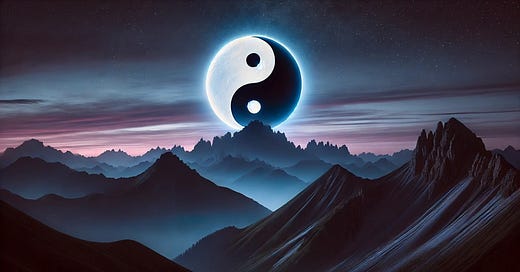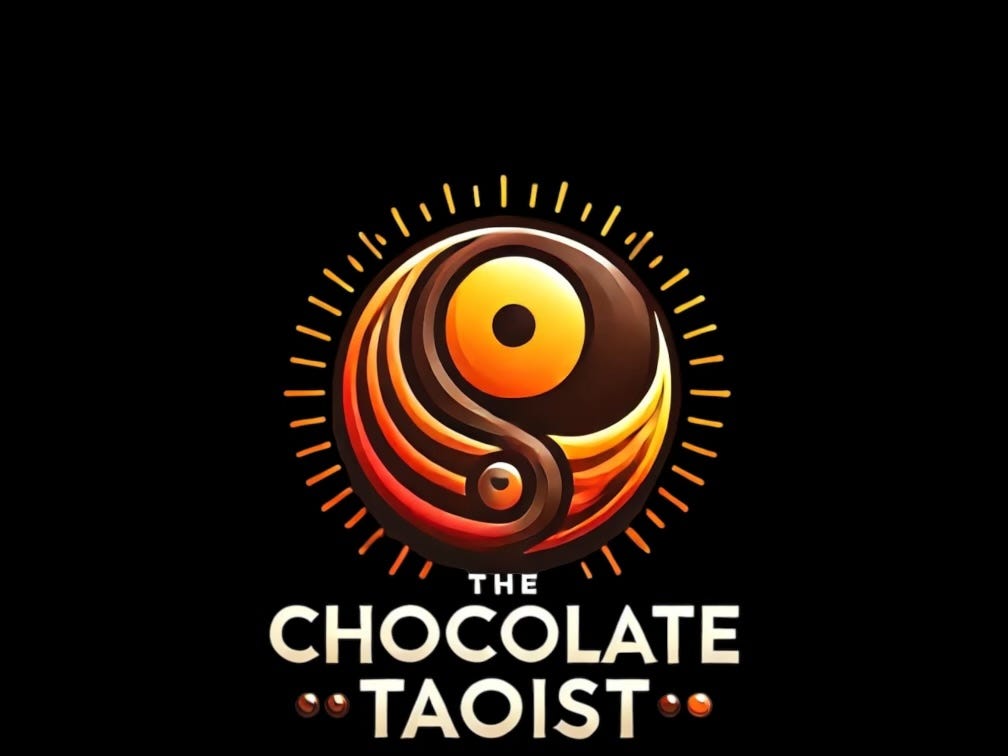The outcome of this past week’s election has led many to grieve for what feels lost — trust in institutions, shared progress, or a vision for a more democratic future.
But could this grief be a profound teacher? What if the loss signals a necessary death of illusions and opens the door to deeper growth, introspection, and renewal, both individually and collectively?
Every day, in ways both subtle and profound, we die. Not just in the cellular sense or through the slow decay of time, but metaphysically—pieces of our identities, our attachments, and our illusions fall away. Each passing moment brings the death of what was, and in its place, the fragile newness of what is.
In Taoism, this constant cycle of death and rebirth is the very essence of life itself—a dance of yin and yang, inseparable and intertwined.
The recent U.S. presidential election has cast this truth into sharp relief. For some, Donald Trump’s victory feels like an existential death—not just for their vision of the nation, but for the values they hold dear. The polarizing rhetoric, the widening divisions, and the perceived descent into chaos have left many mourning a loss not easily named.
It is the death of certainty, the death of a belief in shared progress, and for some, the death of hope itself. Yet in Taoism, chaos is not the enemy. It is the fertile void from which all things arise.
As Lao Tzu suggested in the Tao Te Ching: “New beginnings are often disguised as painful endings.”
I think about death every day. It’s not a morbid obsession but a conscious practice—a way to align myself with the Tao. In reflecting on mortality, I strip away the distractions that cloud my vision, the fears that tether me, and the ego that demands permanence.
Life and death are not opposites; they are two sides of the same coin. In dying to the past, I create space for what is yet to come. In embracing the impermanence of all things, I am freed from the illusion of control.
Elizabeth Kübler-Ross’s seminal book On Death and Dying offers a roadmap for navigating this inner process. Her five stages of grief—denial, anger, bargaining, depression, and acceptance—are not linear, nor are they reserved solely for physical death.
They echo the inner transformations we undergo as we face the small deaths of identity, expectation, and belief. Kübler-Ross reminds us that grief is not an enemy to be vanquished but a teacher guiding us toward deeper understanding and greater expansion. In her words, “Those who learn to know death, rather than to fear and fight it, become our teachers about life.”
The I Ching, the ancient Taoist oracle, reinforces this cyclical view. Hexagram 23, “Splitting Apart,” speaks of decay and dissolution. But it is not a final doom—it is a necessary phase in the cycle of growth. As the commentary states, “What must fall, falls. What must go, goes.” To resist this natural process is to resist life itself.
Hexagram 24, “Return,” follows, heralding renewal and the promise of a fresh start. Together, they remind us that even in the death of a nation’s ideals or the collapse of personal dreams, the seeds of rebirth are already germinating.
As we navigate this post-election period, we face a choice: to cling to despair or to embrace the Taoist principle of wu wei, non-resistance. By flowing with the currents of change rather than fighting against them, we can find a measure of peace. This doesn’t mean passivity or apathy but an active engagement with life as it is, not as we wish it to be.
We are all dying every day—shedding old skins, letting go of attachments, and surrendering to the ever-changing flow of existence. This is not a cause for despair but a call to awaken.
Each death, no matter how painful, carries within it the possibility of transformation. The Tao teaches us to trust in this process, to see the beauty in the breaking, and to find life in the letting go.
The death we feel—whether personal or collective—is not the end. It is an invitation to strip away what no longer serves, to grieve what is lost, and to step courageously into the unknown.
Let us meet this moment not with fear but with faith, not with resistance but with openness. For in the wisdom of the Tao, it is only by dying that we truly begin to live.
Subscribe or upgrade above. Or maybe you’re in a position to tip me some coffeehouse love here. Your contributions are appreciated!
Diamond-Michael Scott aka The Chocolate Taoist






I'm not thrilled about Trump winning, but the most painful death I'm experiencing right now is witnessing the ongoing genocide in Gaza. This would have continued no matter who was elected.
I have to say, and this helped me immensely-
I consider my daughter’s earthly departure date her Rebirthday. This thought came to me a few days after the initial shock. Yes, death is one of the greatest teachers. I completely appreciate your posts. Intuitively I have known and felt things, now have more understandings to why.
🙏☺️ Not an easy thing to share, we all go through stuff. Shifting perspective continues to help me in many situations.